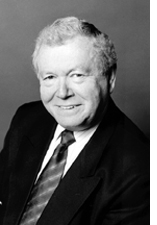By Rabbi Dow Marmur

JERUSALEM –Not being one of them, I find it often quite uncomfortable to walk in ultra-Orthodox neighbourhoods inIsrael, e.g., Meah Shearim in Jerusalem, especially in the company of women. And when I read the notices and the graffiti on the walls, I become depressed by their often hysterical anti-Israel tone. It’s like being in enemy territory.
I had no sense of such discomfort in the course of the two days we spent last week inNazareth,Israel’s largest Arab city. We saw no anti-government slogans or any other provocative material on the walls, even though, judging by those they send to the Knesset, there must be much opposition to this right-wing government.
By contrast, though most haredim belong to political parties that support the present coalition, they seem much more estranged, even hostile, toIsrael than the Muslim and Christian Arab citizens we encountered. Nazareth appears to be more authentically Israeli than Meah Shearim.
El Al doesn’t seem to see it that way. It appears that whereas the haredim that choose to fly El Al don’t encounter many problems when going through security checks, Israeli Arabs do. A recent incident offers an apt illustration.
Yara Mashour lives inNazarethwhere she edits an influential women’s magazine. Also last week she was about to board an El Al flight from Milan to Tel Aviv. Before being allowed on the plane she was subjected to what she describes as a humiliating examination. In the end, she couldn’t take it anymore and flew back via Istanbul on Turkish Airlines where the search was routine and the same for all passengers.
Due to the situation in which Israel finds itself, security is paramount. You’re made aware of it each time you enter a public building, a shopping mall and often even a restaurant. El Al has earned a reputation for being thorough and using techniques of profiling that are said to be very effective. But, judging by Ms Mashour’s account, the method to which she was subjected was far from perfect. And according to what I’ve heard from others, the experience of many Arab passengers is similar.
It seems that many security official don’t want or aren’t able to distinguish between potential Palestinian terrorists and Israeli law-abiding Arab citizens, women and men of the ilk of those who gave us a feeling of ease and comfort in Nazareth.
Perhaps the security personnel should be forgiven for not always knowing how to make proper distinctions and, therefore, when in doubt choose the stricter line, for they well know that an oversight could be fatal. But all of that can always be done with civility, even humour. According to Yara Mashour, the very opposite was the case in Milan. She reported rudeness, yelling and screaming, and non-cooperation by the staff.
Had this been an isolated incident, it could be ignored, despite the publicity given by the affected journalist. But to repeat, by all accounts such stories are very common and are one reason why Arabs tend to avoid the Israeli airline.
Ironically, so do many anti-Zionist haredim, usually because they don’t want to support the Israeli carrier, but also because they accuse EL Al of violating Jewish law suspected of flying on Shabbat, which, of course, non-Israeli airlines are free to do.
I hope that our experience in Nazareth is the norm inIsrael and that officials in Israel who deal with its Arab citizens will always encourage and celebrate that spirit.
*
Rabbi Marmur is spiritual leader emeritus of Holy Blossom Temple in Toronto. Now dividing his time between Canada and Israel, he may be contacted at dow.marmur@sdjewishworld.com